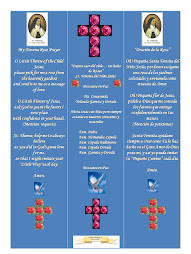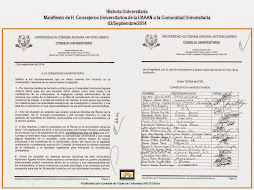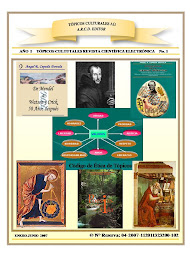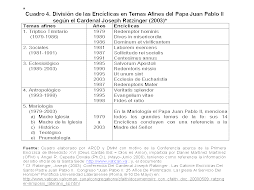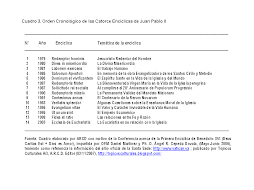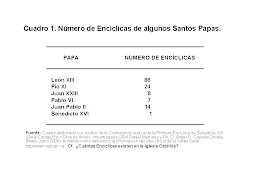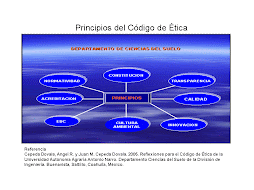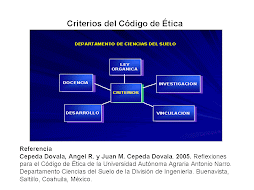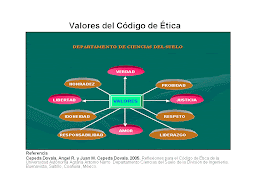SHORT COMMUNICATIONS 221
WikiLeaks Is Justified
By
Roger Behra
WikiLeaks revelations have been front and center in the American national news since the end of November, 2010. The screams and yells in favor or against have been abundant, loud and clear. And the ones in favor of WikiLeaks seem to be very well justified, indeed, because the American government and her ‘secret’ behind the scenes comments, shady, and bad decisions and dealings are finally coming out into the open for all Americans and the world to hear and see. It is a form of needed justice taking place for American, and for that matter, the whole world to witness.
The citizens of America place their faith and trust in all their elected officials and the Washington administration. They justly believe and expect the most proper behavior and solid moral decisions and actions from them, and all the citizens and the world hear and know is what the American media tells them. It is accepted as the truth. It is all there is to go on. And truth is disturbing and saddening.
WikiLeaks has now changed the whole perception of the American State Department and Washington in general as well as the leaders of many foreign countries. The leaks are telling Americans (and the world) what Washington really is about in their dealings at home and abroad: devious, lacking good taste, meddlesome, untruthful, wasteful, distrustful, and wearing a false front. Washington’s behavior has been disgraceful and very embarrassing. The revelations also point out that the American government has too many secrets and what is really thinks about many of the foreign leaders. So, many of the revealed thoughts and remarks are troubling and quite unflattering. As a result foreign leaders will fail to deal with Washington or be very cautious saying anything to Statehouse people or the State Department personnel in private conversations so the will be no more embarrassing revelations. WikiLeaks is very welcomed in the light of justice and what Americans are getting for their tax money.
WikiLeaks has pointed out two other important facts: the size of the amount of information the government keeps secret and the size of the secret keeping group. It is laughable how trivial and unimportant some secrets are. Then there is size of the group -500,000 to 2 million- of government employees with access to official secrets. It is absolutely ridiculous! Washington needs a large dose of reality as soon as possible.
The U.S. President must change and set the agenda and demand an honest and acceptable code of conduct and dealings government officials must adhere to. The WikiLeaks revelations have been very despicable, disturbing, embarrassing, and irreparably damaging to America’s diplomacy and image. But justice has prevailed. Long live WikiLeaks! And may the needed changes take place very quickly.
R. B.
12-19-10
domingo, 30 de enero de 2011
miércoles, 26 de enero de 2011
Benedicto XVI, San Clemente de Alejandría, su Obra y el Pez Ichthys
Benedicto XVI, San Clemente de Alejandría, su Obra, y el Pez Ichthys
Por
Angel R. Cepeda Dovala
Jesucristo dijo: "Siganme y los haré pescadores de hombres" (Mt 4, 19)
El Papa Benedicto XVI, en la Audiencia General del 18 de Abril de 2007, mencionó lo siguiente: [1]
San Clemente de Alejandría, un gran teólogo que nace probablemente en Atenas, en torno a la mitad del siglo II. De Atenas heredó un agudo interés por la filosofía, que haría de él uno de los alféreces del diálogo entre fe y razón en la tradición cristiana. Cuando todavía era joven, llegó a Alejandría, la «ciudad símbolo» de ese fecundo cruce entre diferentes culturas que caracterizó la edad helenista. Fue discípulo de Panteno, hasta sucederle en la dirección de la escuela catequística. Numerosas fuentes atestiguan que fue ordenado presbítero. Durante la persecución de 202-203 abandonó Alejandría para refugiarse en Cesarea, en Capadocia, donde falleció hacia el año 215.
Las obras más importantes que nos quedan de él son tres: el «Protréptico», el «Pedagogo», y los «Stromata». Si bien parece que no era la intención originaria del autor, estos escritos constituyen una auténtica trilogía, destinada a acompañar eficazmente la maduración espiritual del cristiano.
Estimado lector de Tópicos Culturales, en los dos párrafos anteriores su Santidad el Papa Benedicto XVI, nos permite acercarnos al conocimiento de ese gran Teólogo que fue San Clemente de Alejandría, quien recomendó tener como sello una paloma o un pez, (Paedagogus, III, xi).[2], en donde la Paloma simboliza al Espíritu Santo, y el Pez a Nuestro Señor Jesucristo.
El Pez en esta simbología, las letras de la palabra "Ichthys", pez en griego, representan las iniciales de la frase:
Iesous Christos Theou Yios Soter
Que significa en español:
Jesús Cristo Hijo de Dios Salvador
Las letras iniciales de estas cinco palabras forman la palabra griega Ichthys, que significa pez. Posiblemente sea una de las razónes para que a Cristo sea a menudo representado como un pez. [3]
PAZ Y BIEN
ARCD
Notas
[1] Cf. http://www.corazones.org/santos/benedicto16/audiencias/clemente_alejandria_abril18_07.htm
[2] Cf. Symbolism of the Fish, in: http://www.newadvent.org/cathen/06083a.htm
[3] Cf. http://www.corazones.org/diccionario/pez.htm
Por
Angel R. Cepeda Dovala
Jesucristo dijo: "Siganme y los haré pescadores de hombres" (Mt 4, 19)
El Papa Benedicto XVI, en la Audiencia General del 18 de Abril de 2007, mencionó lo siguiente: [1]
San Clemente de Alejandría, un gran teólogo que nace probablemente en Atenas, en torno a la mitad del siglo II. De Atenas heredó un agudo interés por la filosofía, que haría de él uno de los alféreces del diálogo entre fe y razón en la tradición cristiana. Cuando todavía era joven, llegó a Alejandría, la «ciudad símbolo» de ese fecundo cruce entre diferentes culturas que caracterizó la edad helenista. Fue discípulo de Panteno, hasta sucederle en la dirección de la escuela catequística. Numerosas fuentes atestiguan que fue ordenado presbítero. Durante la persecución de 202-203 abandonó Alejandría para refugiarse en Cesarea, en Capadocia, donde falleció hacia el año 215.
Las obras más importantes que nos quedan de él son tres: el «Protréptico», el «Pedagogo», y los «Stromata». Si bien parece que no era la intención originaria del autor, estos escritos constituyen una auténtica trilogía, destinada a acompañar eficazmente la maduración espiritual del cristiano.
Estimado lector de Tópicos Culturales, en los dos párrafos anteriores su Santidad el Papa Benedicto XVI, nos permite acercarnos al conocimiento de ese gran Teólogo que fue San Clemente de Alejandría, quien recomendó tener como sello una paloma o un pez, (Paedagogus, III, xi).[2], en donde la Paloma simboliza al Espíritu Santo, y el Pez a Nuestro Señor Jesucristo.
El Pez en esta simbología, las letras de la palabra "Ichthys", pez en griego, representan las iniciales de la frase:
Iesous Christos Theou Yios Soter
Que significa en español:
Jesús Cristo Hijo de Dios Salvador
Las letras iniciales de estas cinco palabras forman la palabra griega Ichthys, que significa pez. Posiblemente sea una de las razónes para que a Cristo sea a menudo representado como un pez. [3]
PAZ Y BIEN
ARCD
Notas
[1] Cf. http://www.corazones.org/santos/benedicto16/audiencias/clemente_alejandria_abril18_07.htm
[2] Cf. Symbolism of the Fish, in: http://www.newadvent.org/cathen/06083a.htm
[3] Cf. http://www.corazones.org/diccionario/pez.htm
Suscribirse a:
Comentarios (Atom)
Calendario Tópicos Culturales 2011

Our Lady in Art
ICHTHYS

ichthys
MEMORARE
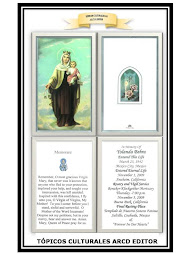
IN MEMORY YOLANDA BEHRA
ICHTHYS

ICHTHYS
Mi Novena Oración de la Rosa Santa Teresita

Mi Novena "Oración de la Rosa"
Oración a San Judas

San Judas, Ruega por Nosotros
¡Feliz Navidad y Venturoso Año Nuevo 2010!

¡Feliz Navidad y Venturoso Año Nuevo 2010!
Acróstico
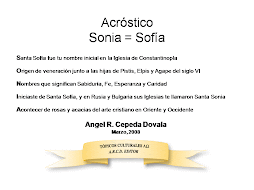
Sonia = Sofía
¡Feliz Pascua 2009!

Pascua.arcd
Pascua 2008

¡Felices Pascuas de Resurrección!
Navidad y Año Nuevo 2008

Feliz Navidad y Próspero Año 2008
Calendario 2013

Juan Pablo II
CALENDARIO 2013

Virgen María en el Arte
Calendario 2013

Benedicto XVI
Pascua 2013

Jesucristo El Buen Pastor
feliz día de las madres 2012

feliz día de las madres 2012
DICIEMBRE 2012

DICIEMBRE 2012
NOVIEMBRE 2012

NOVIEMBRE 2012
OCTUBRE 2012

Octubre 2012
SEPTIEMBRE 2012

SEPTIEMBRE 2012
AGOSTO 2012

AGOSTO 2012
JULIO 2012

JULIO 2012
JUNIO 2012

JUNIO 2012
MAYO 2012

MAYO 2012
ABRIL 2012

ABRIL 2012
MARZO 2012

marzo 2012
FEBRERO 2012

FEBRERO 2012
ENERO 2012

enero 2012
Nuestras Actitudes ante la Vida

Actitudes ante la Vida
SEASON OF CHRISTMAS

DECEMBER 25, 2012-JANUARY 6, 2013
¡FELIZ PASCUA 2012!

pascua 2012
Cátedra de San Pedro

St. Peter
14 de Febrero
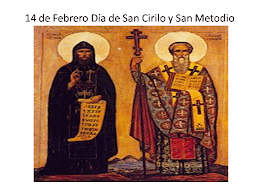
Día de San Cirilo y San Metodio
Conversión de San Pablo

Francesco Mazzola (1503-1540)
Manifiesto Universitario UAAAN

Documento Firmado y Recibido Enero 2013
Manifiesto Remoción Rector UAAAN

Documento, Enero 2013
Bendición

Feliz Navidad y Ventuoroso Año 2013
happy new year 2012

2012
Feliz Navidad 2011

Venturoso Año 2011
CUADRO 1. SÍNTESIS NEMOTÉCNICA UAAAN 2006-2012

CUADRO 2. SÍNTESIS NEMOTÉCNICA UAAAN 2006-2010

SHORT COMMUNICATION 1 ROGER BEHRA
Fig. 1. Development of Human Being. (Roger Behra, 2007)
CEREMONIA PARA LA PAZ

INVITACIÓN ES.PE.RE.
Cuadro 1.Semillas germinadas y estadísticos descriptivos.

ARCD y JMCD
Cuadro 2. Análisis de varianza para la variable número de semillas germinadas.
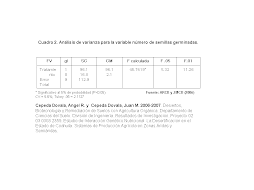
Encíclicas de la Iglesia Católica
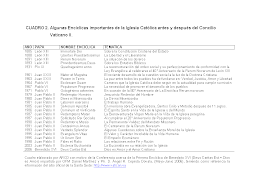
Algunas Encíclicas imortantes de la Iglesia Católica












































































